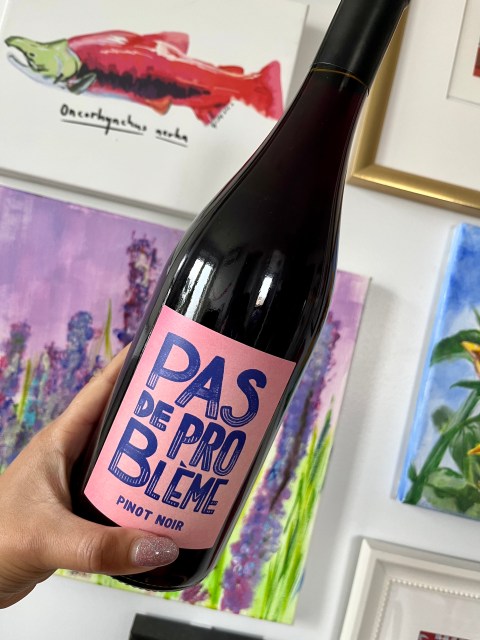feature image by Alexander Spatari via Getty Images
Welcome back to Uncommon Pairings, a series all about wine! In the past few months, we’ve covered identifying tasting notes, making sense of wine labels, and (important) deciding if your wine is still good to drink. Today, we’re going to explore natural wine: what it is, what it isn’t, and why it’s seemingly flying off the shelves now.

It’s getting easier to find natural wine. These days, it seems like every small plates wine bar I enter has at least one natural wine on its list, if not a dedicated section of just natural wines. There are entire stores that solely stock natural wine for customers who are thirsty for something different and unconventional. It might seem like this natural wine renaissance began within the past decade, but it actually traces its roots to France in the mid-20th century. And if we’re talking about natural wine, and not the movement around it? Well, that’s been around forever. Natural wine is how wine used to be made millennia ago, before our ancestors started tinkering with the wine process.
Let’s back up and define natural wine, or at least, try our best to. Unlike “organic” or “vegan”, natural wine isn’t an official designation. Instead, it’s more of a set of guidelines around low-intervention farming and production, with winemakers trying to get as close to pure fermented grape juice as possible. RAW WINE, a community of low-intervention winemakers (who also happen to organize these giant wine fairs globally), describe the wine they celebrate as wine made “without the use of synthetic fertilisers, pesticides, herbicides, or fungicides”. Natural wine is low-intervention wine, so some of the more modern winemaking techniques like using egg whites to filter wine or adding sulfites for preservation aren’t really a thing in the natural wine world.
Despite its name, natural wine isn’t necessarily better for you. It’s still a beverage that has alcohol in it, a beverage that can still give you a hangover. It sometimes has a lower ABV than more traditional wines, but that’s not a guarantee. I think the appeal of natural wine is that it’s more playful than traditional wine, and certainly allows more room for experimentation than wines that have to follow strict rules (like the ones we covered in the piece on wine labels). Also, natural wine labels are cute(r)!
You can find natural wine online, or you can buy directly from a single producer’s online shop if you know what you’re looking for (check out the producers who attend ABV if you need some inspo!). IRL wine shops across the country sell natural wine, too. Some to consider: Crocodile Wine in Asheville, NC, Grapefruit Wines in Hudson, NY, Palm City in San Francisco, CA (also sells hoagies!), Paradis Books + Bread in Miami, FL — honestly, there are so many! Your local wine shop might also carry at least a few, even if it’s not a dedicated natural wine shop, and if they don’t, they can point you in the direction of a wine shop that does. Also, Trader Joe’s definitely sells at least one natural wine (a pet-nat).
It’s true that sometimes natural wines are decidedly Not Good. I am of the opinion that sometimes the line between “funky” and “bad” gets blurred in the natural wine world. But most of the time, the natural wines I’ve had — and I drink almost exclusively natural wine these days — have been exceptional, and in some cases, mind-blowing. There are producers who are cofermenting grapes with other fruit, others who are turning to historically overlooked grapes and seeing what magic can come from them. The natural wine movement is still very much in its infancy, and I’m excited to see where it goes.








Comments
This clears up some questions I had! Really enjoying this column
Wine & Cakes are a match made in heaven
Check out Customized Cakes in Thrissur-https://cakiyo.com/cakes/thrissur
https://cakiyo.com/cakes/thrissur